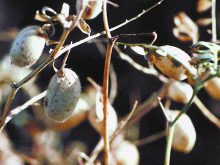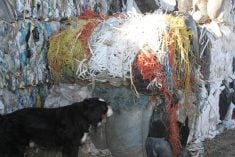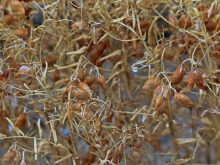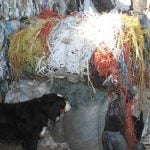Alberta Conservative MP Leon Benoit says federal rules that stop prairie farmers from using a two percent liquid strychnine solution to poison gophers is “probably the most important issue” before Parliament.
He has proposed a motion that would force the Pest Management Regulatory Agency to overturn a 12-year-old ban on allowing farmers to buy and use the product.
And since the PMRA is reviewing the current rule that allows a 0.4 percent strychnine product on the market, Benoit said prairie farmers should deluge the agency with demands that the two percent solution be allowed.
Read Also

Message to provincial agriculture ministers: focus on international trade
International trade stakeholders said securing markets in the face of increasing protectionism should be the key priority for Canada’s agriculture ministers.
The comment period on whether to extend the registration of the weaker product for another three years ends Nov. 24.
“The most effective course of action right now is for farmers and those with concerns about the gopher population and the inability to use an effective level of liquid strychnine to send their submissions to the agency,” the MP said last week.
Benoit said gophers, properly known as Richardson’s ground squirrels, cause up to $200 million in damage each year to the prairie farm economy through crop destruction and injury to animals stepping into gopher holes.
He insists the approved weaker product is ineffective and the gopher population has exploded since the 1993 ban to the detriment of farmers. Benoit has raised the issue in Parliament four times since he was elected in 1993.
The government’s defence of the ban rests on the argument that the existing product is effective and use of a stronger strychnine solution kills more than gophers.
“The government moved to restrict the availability of strychnine liquid concentrate only to protect Canadians’ health and safety and their environment from possible serious adverse effects of this dangerous poison,” Robert Thibault, Liberal MP and parliamentary secretary to health minister Ujjal Dosanjh, said during the first hour of debate on Benoit’s motion Sept. 26. “Strychnine has a very high level of acute toxicity and has been and continues to be implicated in poisonings of non-target animals including dogs and wildlife.”
The PMRA says in its background document on the issue that it is proposing to continue registering the lower-concentrate product because it is effective in controlling the populations of gophers, skunks, pigeons, wolves, coyotes and black bears without raising “concerns for human health or the environment.”
However, the agency said it hopes the extension of the registration will be temporary once other more benign products are developed.
“If implemented, this interim decision will be reviewed in three years in light of the progress made toward implementation of the Richardson’s ground squirrel pest management strategy,” it says.
Benoit insists the agency and the government are peddling “misinformation” about the dangers of a two percent solution and the efficacy of the weaker product that is on the market.














